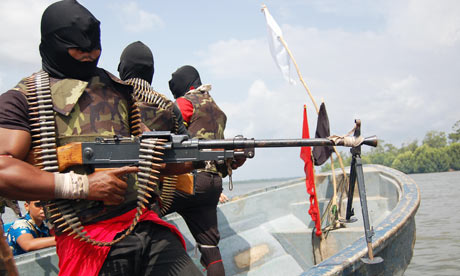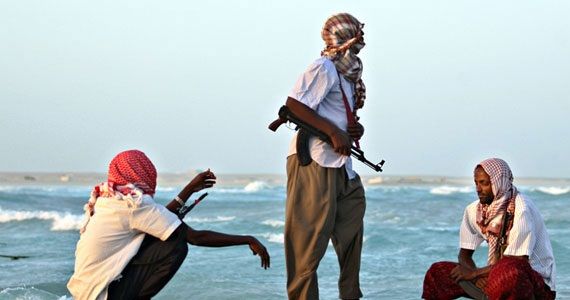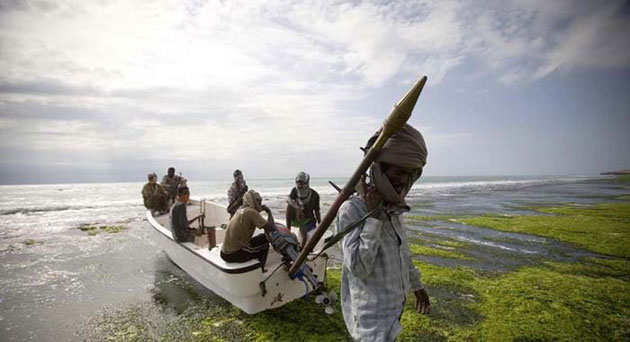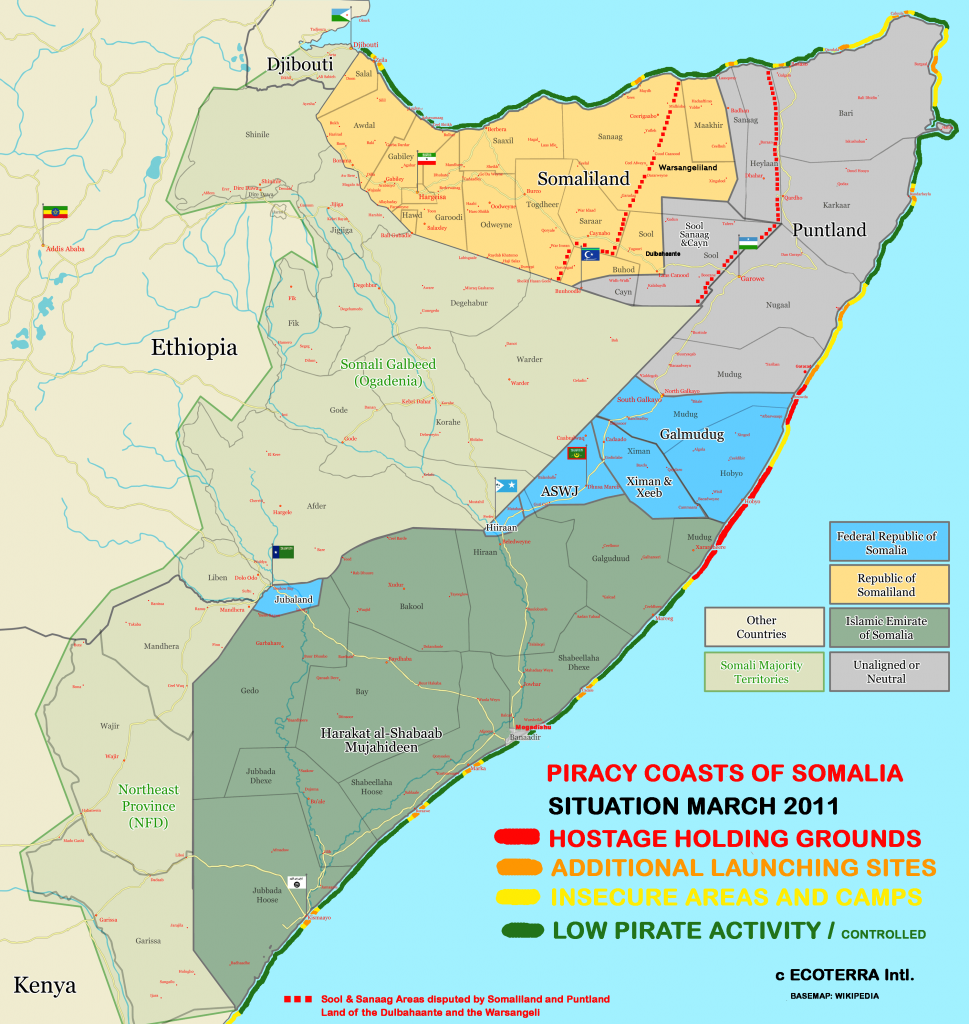
The NGO Oceans Beyond Piracy recently updated their report, The Human Cost of Maritime Piracy, including data from 2012. Discussing the impact piracy (or more accurately, “maritime crime”) off Somalia or West Africa has had on merchant seaman, the report has received much exposure from the press by pointing out that in 2012 more pirate attacks occurred in West Africa than off Somalia.
The shift of piracy’s center of gravity from the east to west coast of Africa may shed light on more than just the current hotspots for maritime insecurity, but also demonstrate how commonly held assumptions regarding the impact state failure has on maritime security may be overstated or false. For much of the last decade, the conventional wisdom has been that “failed states” or “ungoverned spaces” are breeding grounds for illicit activities like terrorism, drug trafficking, arms smuggling, and piracy. However, academics like Stewart Patrick and Ken Menkhaus have argued that illicit actors may in fact find that “weak but functioning” states are more attractive environments to operate in than failed states, as weak states, despite their problems, have the necessary linkages into the global economic system that failed states lack, and that illicit actors need to be able to profit from their activities.
More importantly, it is much more difficult for external actors to interfere in the internal affairs of a weak state than a failed state. Without a functioning government (excepting the self-declared states of Somaliland and Puntland), there has been nothing to stop foreign intervention in Somalia against terrorists or pirates (such as Ethiopian and Kenyan invasions, occasional raids against pirate camps by Western militaries, and an African Union-sponsored peacekeeping force). In West Africa, meanwhile, much of the violence has been conducted within the territorial waters of Nigeria or its neighbors, and conducted by Nigeria-based gangs. While the various Gulf of Guinea states are planning talks to hammer out the details of a regional counter-piracy strategy, it is unlikely that sovereignty-conscious states like Nigeria would be willing to accept outside intervention by Western navies in the region. Ultimately, there is nothing stopping a foreign power from using military force against pirates in Somalia if they desire, but a similar course of action in Nigeria would be much more complicated by the fact that there is a functioning government in Nigeria, even with Abuja’s somewhat limited ability to assert its authority in the Niger Delta.
Lieutenant Commander Mark Munson is a Naval Intelligence officer currently serving on the OPNAV staff. He has previously served at Naval Special Warfare Group FOUR, the Office of Naval Intelligence, and onboard USS Essex (LHD 2). The views expressed are solely those of the author and do not reflect the official viewpoints or policies of the Department of Defense or the U.S. Government.
PS: Oceans Beyond Piracy report is worth a read because it shifts the focus from the typical economic costs of piracy and whether the piracy in Somalia has hurt the bottom line of the maritime industry to the real victims, the poorly-paid merchant seamen who have truly borne the cost of maritime insecurity as piracy has exploded on both the east and west coasts of Africa.




